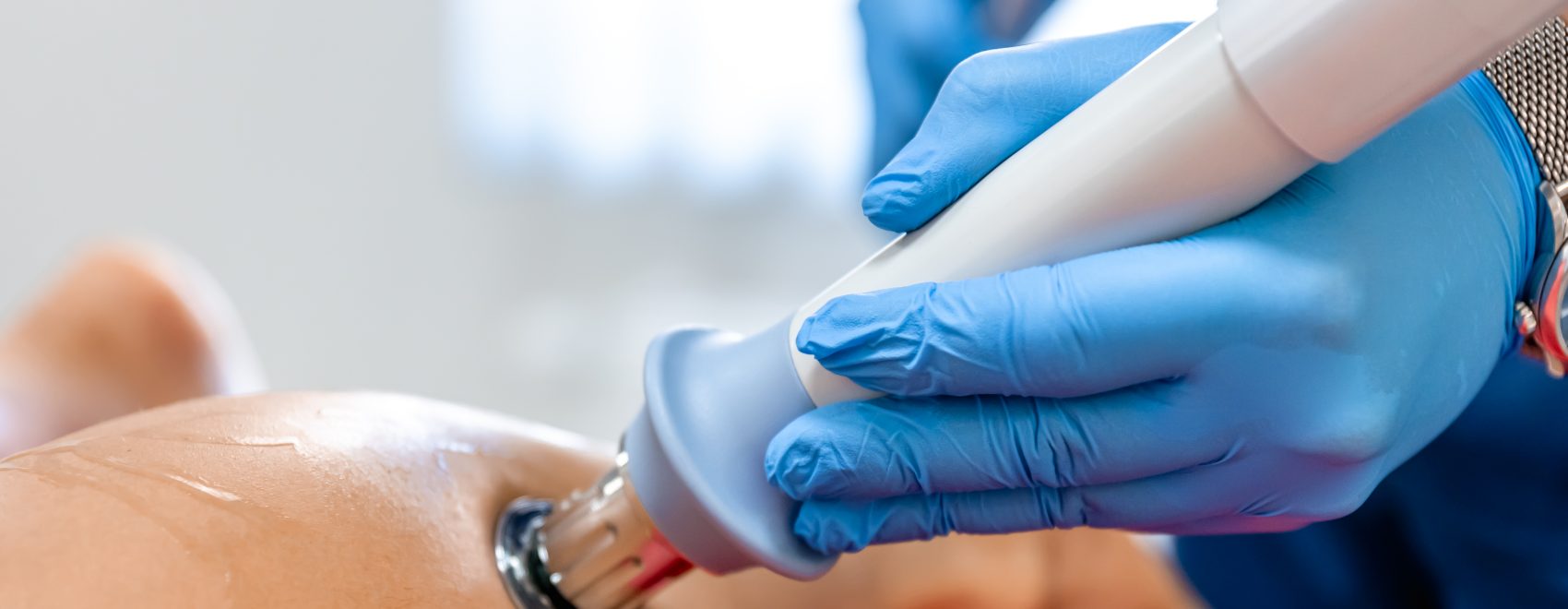How non-invasive shockwave therapy helps relieve tendon pain and restore mobility
Achilles tendinitis is a common and often frustrating condition that affects the tendon at the back of your ankle. It can make walking painful and turn everyday movements into a struggle. At GD Osteopathy in Enfield, radial shockwave therapy offers a modern solution to help people overcome this persistent tendon pain without resorting to injections or surgery.
Understanding Achilles tendinitis
Achilles tendinitis occurs when the Achilles tendon—the large tendon that connects your calf muscles to your heel bone—becomes irritated or inflamed. This condition is particularly common among runners and people who increase their activity levels too quickly, but it can also result from poor footwear, tight calf muscles, or biomechanical imbalances.
Symptoms of Achilles tendinitis often include:
- Stiffness and pain along the tendon, especially in the morning
- Swelling in the back of the heel
- Pain that worsens with activity
- Tenderness or a creaking sensation when touching or moving the tendon
Left untreated, it may progress to a chronic condition called Achilles tendinopathy, where degeneration rather than inflammation becomes the main problem.
What is Radial Shockwave Therapy?
Radial shockwave therapy (RSWT) is a non-invasive treatment that uses high-energy sound waves to stimulate healing in damaged soft tissues. Originally developed for treating kidney stones, shockwave technology has since found valuable applications in orthopaedics and sports medicine.
Unlike focused shockwave therapy, which penetrates deeper, radial shockwaves disperse more broadly across the surface of the injured area, making it ideal for treating conditions like Achilles tendinitis that affect superficial tendon tissues.
Key benefits include:
- Increased blood flow to the tendon
- Stimulation of collagen production
- Reduced pain and inflammation
- Accelerated healing and tissue regeneration
How Shockwave Therapy Treats Achilles Tendinitis
When applied to the affected area, the radial pressure waves help break down scar tissue, promote new blood vessel formation, and reset the pain signalling pathways. This process encourages the body’s natural healing response and has been shown in clinical studies to be effective for treating chronic tendinopathies, including those affecting the Achilles.
The therapy is typically applied once a week for 3-6 sessions, with many patients noticing improvement within the first few treatments.
The Treatment Experience at GD Osteopathy
At GD Osteopathy in Enfield, radial shockwave therapy is administered by qualified practitioners who begin with a thorough assessment to confirm that the treatment is suitable for your condition.
Here’s what you can expect during a session:
- A short consultation to pinpoint the treatment area
- Application of a gel to ensure proper contact with the device
- Delivery of sound waves to the tendon using a handheld applicator
- Each session lasts about 15–20 minutes
The procedure is generally well-tolerated, although some people may feel mild discomfort during treatment, similar to deep tissue massage. There’s no downtime, so you can walk out and resume daily activities immediately.
Who Can Benefit?
Radial shockwave therapy is particularly beneficial for:
- Runners or athletes with repetitive strain injuries
- Individuals with long-standing Achilles pain
- People who haven’t responded well to rest, stretching, or orthotics
It’s a good option for those looking to avoid invasive treatments like steroid injections or surgery. However, it’s not recommended for individuals with certain health conditions (e.g., blood clotting disorders, pregnancy) or for those with an active infection or tumour near the treatment site. A proper diagnosis is essential, which is why a clinical consultation at GD Osteopathy is the first step.
Complementary Care and Recovery Tips
To maximise results and prevent recurrence, shockwave therapy is often combined with other treatments such as:
- Stretching and strengthening exercises
- Manual therapy
- Guidance on proper footwear and movement patterns
Maintaining flexibility in the calf muscles, gradually increasing activity levels, and using supportive footwear can all help in your long-term recovery.
Find Out More
To explore more about tendon conditions and general advice, the NHS website offers a detailed guide on tendonitis.
For personalised care and advanced treatment options, visit the GD Osteopathy Shockwave Therapy page for more information on how it works and what to expect.
Ready to Book?
Don’t let heel pain hold you back. Book your consultation for Radial Shockwave Therapy at GD Osteopathy in Enfield today and take your first step towards long-lasting relief and better mobility.

